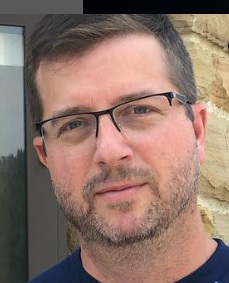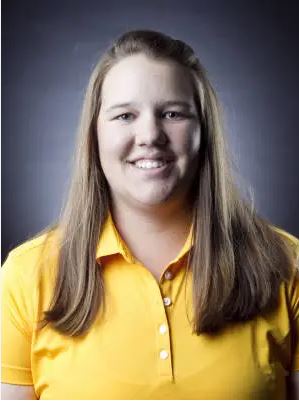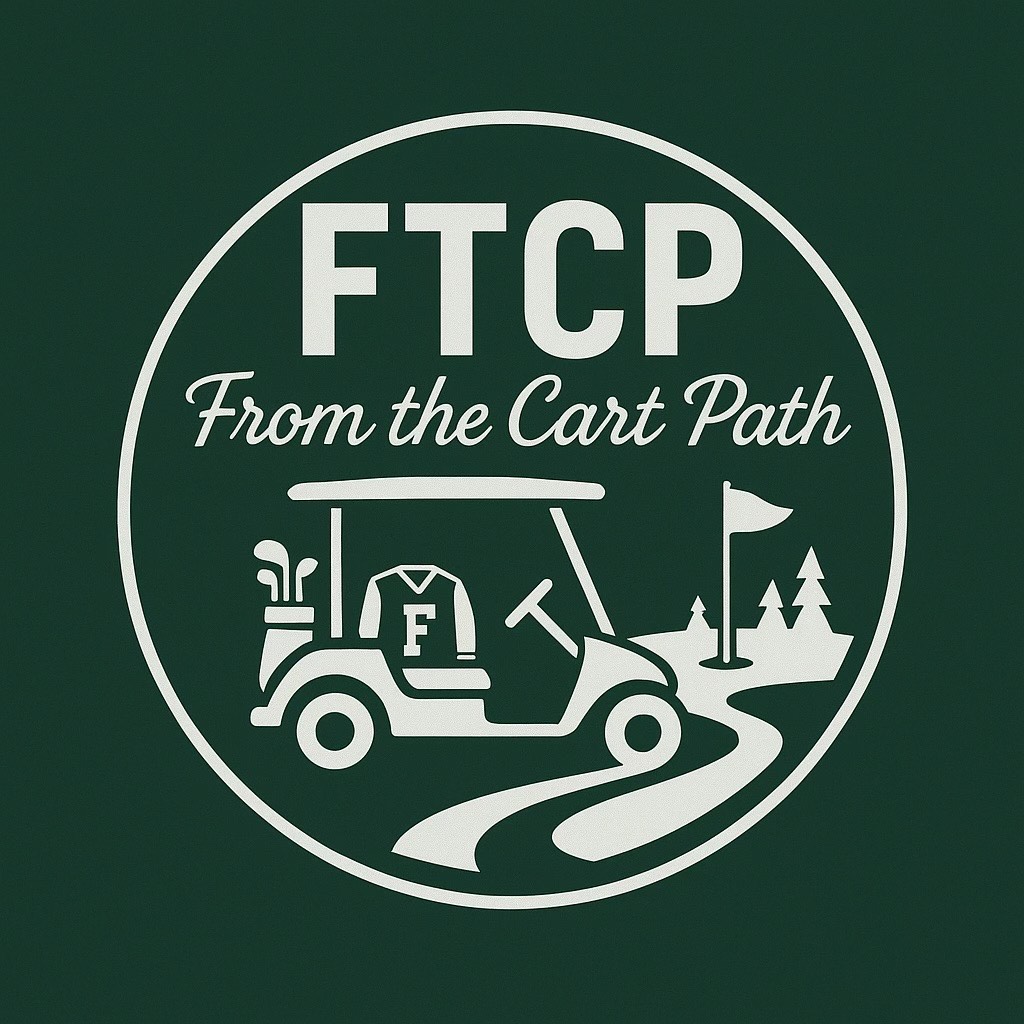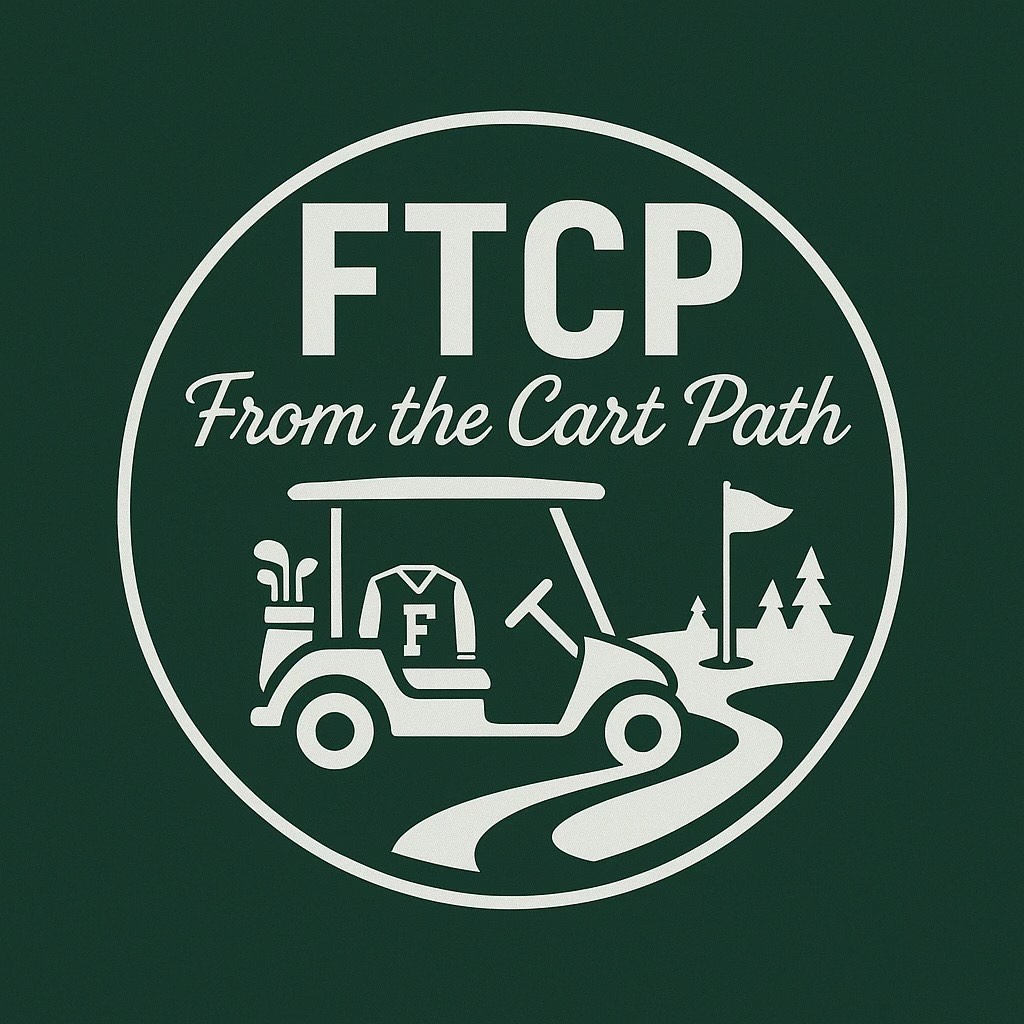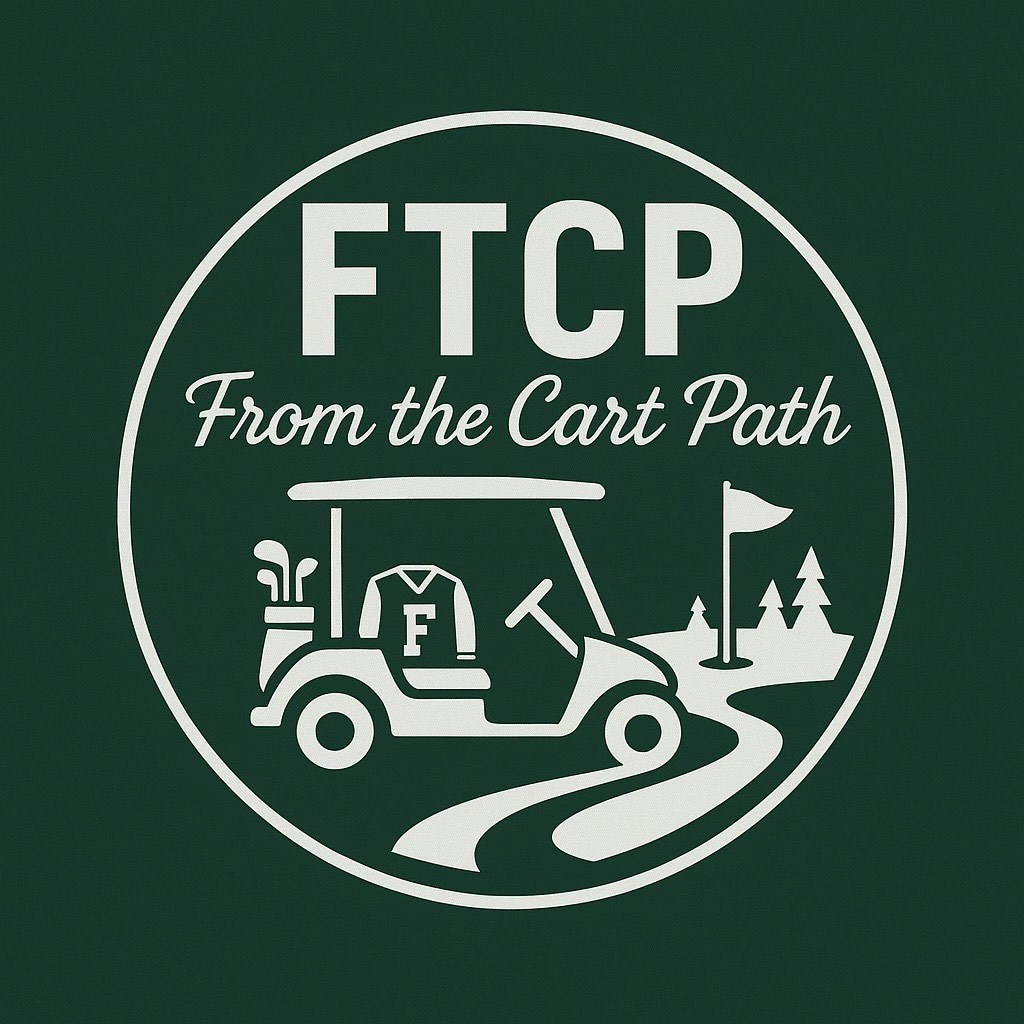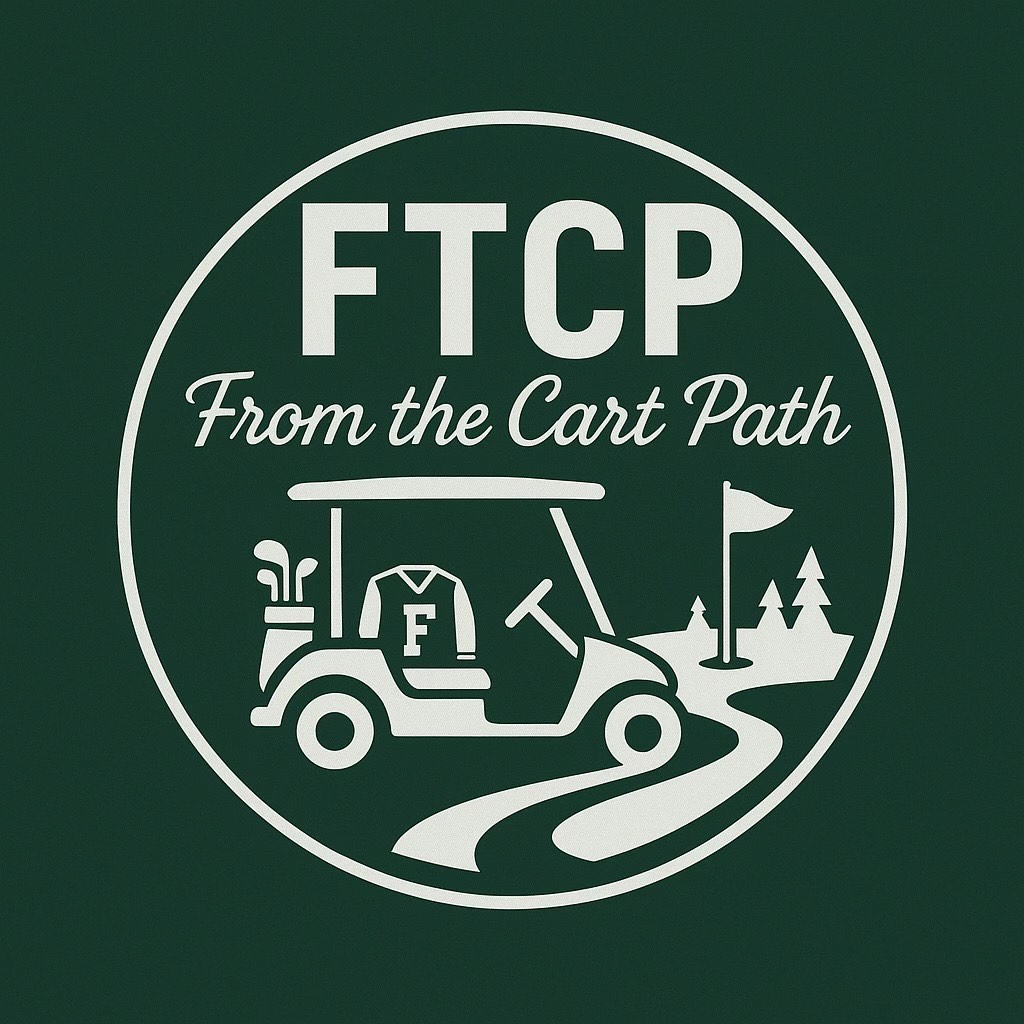Episode Transcript
[00:00:01] Speaker A: Welcome, because you are now listening to from the CART Pass with your host, Trent Roberts, bringing you tips, support and player recognition and education with the experts for parents and junior golfers in Indiana.
This is from the CART Path with your host, Trent Roberts.
Hey, everyone, this is Trent Roberts again with from the CART Path. This week we have a guest and I'm going to do a quick introduction of Claire Swathwood, but first, let's just talk a little bit about her. She just finished her first year at the University of Memphis, where she's majoring in strategic media, which I need tons of help with. She is a member of the women's golf team at Memphis, where she participated in 11 events, averaging 76.4 and finishing in the top 15 and three of those events. Her best finish was at the UNCG AGPC Invitational. Those are a lot of acronyms there, Claire. At the Hammock Creek Golf Course in Palm City, Florida. She also finished her last round of the season shooting a one under par 71 at the American Women's Conference Championship to cap off her freshman season, which is a great way to finish her season. Claire, thanks for joining me. Claire swathwood.
[00:01:24] Speaker B: Yes, thank you so much for having me.
[00:01:26] Speaker A: Yeah. Well, now let's talk a little bit about that freshman year of playing and then we'll kind of go back into your recruiting process. But I think it's just kind of fun to talk about that whole first year for you.
[00:01:37] Speaker B: Yeah, I mean, I had a great, great experience my first year.
I felt like I didn't really know what I was getting into, but at the same time I felt really prepared with kind of my, my circle and team around me and jumped right into it and qualified for the first event. And it was put my head down from there and played in every event. I did my best. I had some good rounds and some bad rounds and learned a lot. And I feel like I've matured as a player since I first started this year. So it was pretty great.
[00:02:12] Speaker A: Great. It's been a couple years since you started your whole recruiting process.
Kind of go back through and talk to me about your process, everything that you did and how you treated it. Because I think we had a pretty good conversation before we started this about how you treated the whole process and it helped you end up landing where you are.
[00:02:33] Speaker B: Absolutely. I think my whole process really started probably my freshman or sophomore year of high school. Just kind of looking around at schools. Of course, you couldn't talk to anybody yet, but my parents and I just kind of sat Together and talked about some. Some different. Some dreams and some realities and some different things. But we ultimately just made a very, very large spreadsheet of every school we could think of and some information about it, the division, the conference, the coach, emails, phone numbers, that kind of thing. And just kind of started formulating that information, which. And it was a very kind of nerdy way to go about it, but it helped us stay organized.
And early on in the process, definitely just keeping that list very large. I mean, I think starting out, there had to be over 200 schools on this list and just narrowing down. And when we would travel or play in different golf tournaments, if we could, we'd drive by nearby schools just to look and get a feel for different campuses and things, which, of course, really didn't give me much back then. But it was cool to see just being so young.
And then as we kind of started going through the real process, as I got older in my junior year, and then I finally kind of start. Could start sending emails, or I guess that may have been the end of my sophomore year, started sending emails, an introductory email to all of those coaches, and we'd probably narrowed down a little bit at that point of just some schools that really didn't make sense.
And then just kind of kept in touch and sent something every month or two from then on. And based upon different responses I would get, once that June 15 came around, we would eliminate or we would kind of move something up.
And we definitely kind of did this as a family. I'm an only child. And so we just had a lot of conversations, a lot of talks about what went down. But I did handle a lot of the emails and phone calls by myself.
And then it just kept narrowing from there. I would still send update emails. Coaches would get back, say, sorry, we don't have any spots for you, or, you know, we're not, you know, things.
Stars weren't aligning in some of those scenarios, which was good to help kind of narrow down. And eventually just kept narrowing and narrowing until I was probably at 10 to 20 schools heading into the second semester of my junior year of high school. And I had gone on a couple introductory visits in that fall, which was great to get a feel for different schools.
And I was a big proponent of just going if they gave the opportunity, just go see it, even if you don't feel like it's the right school for you, because I think at the end of the day, it's important to use what you learn on that visit to help compare to others.
And you just never know what you're going to see.
And we found that in Memphis, that I had a great phone call with the coach and decided we. We both wanted to come on a visit, but I was very unsure. I knew really not much about Memphis and ended up going on the visit. Totally changed my mind. I had an amazing experience. I got along with the team really well, and everything went from there. We narrowed and narrowed. I was down to about five schools, went to about three, down to two.
And I made my final decision of Memphis right before I headed into the summer, before my senior year.
[00:06:16] Speaker A: I remember that because it's. Obviously, we see you a lot playing. I know we play with you a few times. We got lucky to do that. And just going through that process.
When did you know that it was Memphis?
[00:06:29] Speaker B: It was a very, very difficult decision. I was between Memphis and another school that in both cases, I really just felt were perfect. I didn't see we had pros and cons, and I hardly saw any cons in either school. And what it came down to for me was just feel. I felt like I had done such a good job through the whole recruiting process of finding things that felt right and keeping my options open, as kind of I talked about.
And it came down to a very hard decision, but one that, you know, I just. It took me days, really, where I just.
I just thought about both and tried to picture myself at both. And it came down to the fact that I felt like I would fit into the.
The energy and environment of Memphis being a little bit of a bigger school. Football, basketball, big teams, that kind of environment.
Coming from a large Carmel high school, I just felt like it was a lot more me.
[00:07:37] Speaker A: And so Carmel's its own college campus, right?
[00:07:39] Speaker B: Exactly. So.
And that's what it was for me. But I Absolutely everything you could think of, the coach, the team, the practice facilities, the dorm facilities, all the other people we talked to in the athletic department and people in the academic building that I was looking for for my major. Everything just seemed perfect, along with just the vibe of the school, really bigger school feel. Everything just felt right.
[00:08:14] Speaker A: That's great. Now, how frequently did you speak with Coach Jordan?
[00:08:20] Speaker B: After we first had our initial phone call, we probably caught up once or twice more.
We. We had our first call, I think, in January of my junior year, and we called two or three times than before about May, just catching up. But I mean, especially as I narrowed and got closer in the process and made that clear to her, I think we were texting incredibly frequently. I'd say sending texts back and forth weekly, if not more than that in those cases. And then especially once I committed.
We totally stayed in touch that whole summer and it was just very exciting.
[00:09:08] Speaker A: But yeah, so you guys developed quite the relationship during the whole entire process and I think that helps too.
And you guys sounds like you guys hit it off quite well.
[00:09:19] Speaker B: Yeah.
[00:09:19] Speaker A: What was your first year like playing for her?
[00:09:24] Speaker B: It was great.
She's an incredible coach.
She's a very direct person, which I think is great. I think you find in college in general, as we talked about earlier before the call, how this is really just a sales thing. You sell yourself and they try to sell to you. And so there's a lot of sugar coating and there's a lot of weird things and that go around just because of the nature of how cutthroat I think it's in recruiting is.
And she never did any of that. She was very open and honest, transparent about everything.
And I had a lot of respect for that. And I didn't see a lot of that to that degree and that mixed with just humor and sarcasm and everything. We.
[00:10:20] Speaker A: You're not sarcastic, are you, Claire?
[00:10:23] Speaker B: Of course not.
But we just got along really well and I had a lot of respect for her as a coach and I think that helped going in that I was able to trust her with a lot of different things throughout the year.
[00:10:35] Speaker A: That's great.
[00:10:36] Speaker B: And just if I ever needed help with anything, I knew I could go to her, which I think is just very comfortable and trusting relationship to have in my first year.
[00:10:47] Speaker A: So now we've made our decision. I know you've had a great relationship with the coach during that recruiting process.
You end your senior high school golf season, obviously the team state title, and then you go into playing some summer tournaments and spring events.
How was that year different than the ones before? And then talk a little bit about the transition going into your tryouts and playing and all that.
[00:11:18] Speaker B: Yeah, I think it was very freeing knowing that I was committed and that I didn't have to prove myself or, or play for offers or anything.
And I felt like through the whole process I wasn't very stressed out. I know a lot of people get a lot of stress, which is completely normal because it is a stressful thing. But I felt very calm and I think because of how open minded I was about schools, I was very freed. And so that totally continued and even more so I'd say, as being committed.
And of course I wanted to succeed and play well, but really when it came down to It. Everything was preparing for that first year, and especially as the tournament started to wrap up in July, it was a lot. A lot of practice and training to get ready, because we jump right into it. You know, we had our first event maybe two and a half weeks after we got to school, so there's. There's no time to. To scramble at that point. So I wanted to be ready, and I was.
You know, I worked very hard, and I would definitely advise that and getting ready before you go, but definitely paid off.
[00:12:44] Speaker A: Now, when you say you're working hard, how much time were you putting in weekly and daily as a part of that process? Because I think that's important to understand because I see so many kids go out and they consider practicing and being important. They go out, hit that 30 balls, and then go back in their car and drive home. That's not you. So talk a little bit about your process.
[00:13:06] Speaker B: Yeah, I feel like over time, I've kind of developed this sort of routine, especially now that I'm back home for the summer.
This. This routine is. I'll typically have a workout at Fitness Garage on Monday, Wednesday, Friday, Tuesday, Thursday, maybe all of the above, if I can fit it in.
And so I'll have that at some time in the morning. 7, 8, 9, 9, 30, whatever it may be. And then I typically will grab a bite to eat and go over to the course and I'll practice.
I like to actually start with chipping and putting, and I'll do that for two hours or so, three hours, whatever it is, whatever I'm kind of working on. And then I'll usually go to the range then for another hour to two hours, dial in anything there and then.
So I don't know what that is a lot. Four or five hours on a typical.
[00:14:09] Speaker A: Day, you treat it as a job.
[00:14:12] Speaker B: And, you know, even sometimes then go play nine or 18 holes after. Yeah, or maybe I'll cut everything short and go play on the course. But definitely a long time. But I do see it as my job in the summer. I think that's important to understand that people ask me if I'm working or have a job. And yes, I have little things. I'm caddying and doing some other little things to make a little money. But truly, my job is to practice and be the best golfer I can be. I owe that to my team and my coach. And so I definitely spend most of my day, almost every day doing that.
[00:14:47] Speaker A: That's one thing I've always. I've heard and I've seen and I'VE known about you is the work ethic and I wanted people to hear how much time you put into that.
I just don't think most people understand what it takes to get to where you want to be.
And I think too is there's a name of a school that you wear on the front every time you go out to play now and that school's funding majority of your school, if not all. I don't know your situation and I look at that as if they are funding your schooling.
You're going to go give it your all for them along the way.
And I think you did that even when you played in high school was you wore that Carmel name on the front of you and you put everything you could into it and look at how it paid off, right? So I think you're doing the same thing now. So I have mad respect for you. Claire, for.
[00:15:43] Speaker B: Thank you.
[00:15:44] Speaker A: The amount of time you put into it. So now we've transitioned to college. Let's talk a little bit outside of the game and life at Memphis because I think you said it best earlier is one of the things you liked about Memphis was having a football program, having as we know, a solid basketball program year in and year out now with some great names that come through there. So let's talk about life outside of golf at Memphis. What's that been like?
[00:16:13] Speaker B: Yeah, it was great. Honestly, I think our school is kind of in a mid size. I think it's around 15, maybe to 20,000 students somewhere in there. And so definitely not as big as some of the biggest schools. But there's definitely a lot of students there and I enjoy that.
And sports are a pretty big deal.
Definitely more so football, basketball of course, but it's super cool. I mean both of our, our football stadium is the Liberty bowl about 10 minutes off campus. It's super big football stadium for Memphis football only.
And our basketball team plays downtown at the FedEx forum which is where the Grizzlies play, which is awesome. And it's just such a cool environment to be able to go to those kind of games and see there's just so much pride in the city of Memphis and the University of Memphis that I've gotten to experience. I'm very honored to be a part of and it's just awesome. And I love that. And I feel like Carmel in a way brought me up to be very school spirited and proud to be a part of. And I think that's just something that I definitely take to heart. And what you said about wearing it on My chest. And so it's super cool that I can be there and be a part of it. It's super fun.
[00:17:39] Speaker A: Great. So now you've chosen the major that you've chosen with Strategic Media.
Tell me a little bit about why you went that direction. And was that part of the reason you went to Memphis as well?
[00:17:53] Speaker B: Yeah, Strategic Media is kind of a mix of some different things. It's pretty focused on social media and graphic design, marketing, things of that nature. And I was looking for something along those lines because of kind of what I had done and found in high school.
I was a part of the Hounds HQ team in high school that some are probably familiar with that do social media for all the sports.
[00:18:23] Speaker A: I saw your guys's Tick Tock. You did?
[00:18:26] Speaker B: Yes. Me and a couple other students were really able to start it and get it going. And then we kind of saw some other schools follow, which was awesome. And just I really enjoyed and found a hobby for making graphics, taking photos, things of that nature. And so I really thought to continue that in college. And I think I was looking for something like that at every school and I felt like business or marketing or something could be my backup, but that's really what I wanted to do.
And Memphis had this great new program for it. Strategic Media is a very new major and there's a couple different concentrations under it.
And so that was something that I was looking for in my visits too, is can I talk to somebody in this department? Can I see what this major is about and if it's actually what I'm looking for? And it absolutely was at Memphis.
So I'm very excited to continue these.
[00:19:21] Speaker A: Classes because freshman year is more. More basic classes that freshman year.
[00:19:27] Speaker B: Yeah, for the most part I had a few which were not. Which were very cool to kind of see what everything else is going to be like.
[00:19:35] Speaker A: I remember my freshman year.
Not going to say how long ago, Claire, but I remember that freshman year of those classes that first semester, like I just took these. Why do I got to take them again?
That's kind of how you feel until you can get into some of those fun type major classes of what you're interested in. And that's where it gets fun. So we've, we've had that year.
What.
How are the tournaments different for college versus your summer tournaments? Whether it was aja, the spring series or golf week, or high school versus what you're doing now. What. What do you think some of the big differences are?
[00:20:16] Speaker B: Yeah, I feel like, I mean it can be similar to high school in this way, but I feel like almost in a way it's different, that it is very much about your team.
And I think again, of course, in high school, it is similar in that way. But compared to individual tournaments and everything, that you're there for your team and your team score and there is individual leaderboards, but. But that's never really the main focus.
And you're there hyping each other up and you're there to help each other. And I'd say that's the biggest difference. And everybody's kind of in there. Every team's in their own little groups. And you definitely feel like kind of the energy and the competitiveness kind of from everyone and so kind of creates at every tournament this high stakes kind of feeling, which I wasn't really expecting. But it's. It's a lot of fun, though. And to be on a team, I think it's just so much fun. And to have other people with you that share your same kind of passions and be able to, like, put your heads together and, and have a great team, I think is really fun.
So feel like that's a big mental difference. And of course, the other difference is playing 36, 18 a lot of the times, which is, I think, highly talked about in preparation for college. It's. It's its own mental and physical battle that you just have to prepare for. But honestly, I think there's not. You don't want to read too deeply into it. It's just two more rounds of golf, you know?
[00:21:59] Speaker A: Yeah. And you don't have your parents there. Well, you do. Your parents come to everything. But a lot of kids don't have their parents there over the sidelines saying, hey, are you eating? Are you getting enough food in the day?
In reality is, we're not there doing that anymore. From the parents I've spoken to, when they go watch their kids play, they're like, you're a spectator. That's their job. It's different now.
So back in Memphis, have you found some favorite places to go to off campus for eating?
[00:22:27] Speaker B: Yeah.
Our team favorite has got to be a little Mexican restaurant really close to our athletic facilities called Las Delicias. And it is very good. Mexican place is very cheap. You can generally get what you're trying to get for less than $10, no matter what.
[00:22:46] Speaker A: As a college student, that counts.
[00:22:48] Speaker B: It's absolutely great.
I'd say, yeah, that's our favorite. And we've had some barbecue spots, some chicken spots.
Trying to think, I always end up falling on you. Know Chipotle and things like that. But I did have a kitchen this year, my freshman year in our dorm.
[00:23:13] Speaker A: Oh nice.
[00:23:14] Speaker B: A six girl suite kind of thing with all of our own bedrooms and a living room and a kitchen. So I did cook a lot, which was nice. And another adjustment, but I love it.
[00:23:25] Speaker A: So all teammates or different.
[00:23:27] Speaker B: There's. We had two golfers, two from the softball team and two from the rifle team.
[00:23:32] Speaker A: So a little bit a rifle team?
[00:23:34] Speaker B: Yes, yes, very is different. I knew nothing about it.
It's like. Like Olympic. Like really rifle. Yeah, yeah.
[00:23:46] Speaker A: Those are the two roommates I'm not upsetting.
[00:23:48] Speaker B: Right.
[00:23:51] Speaker A: That's fantastic. That's just. I've always wondered, so time management wise, is it ch. Did you have to get better at that or was it similar to your past?
[00:24:01] Speaker B: I mean, I think because of my. My nature, it wasn't necessarily hard. I think it's definitely something to keep in mind. And I think of course I had my struggles and I think that's something that everyone kind of has to think about going into it. But for me it really gave me like the freedom like the blank canvas to go like do everything that I wanted to do. And I think I could design my day to exactly how I wanted to get everything done.
I had a great sleep schedule. I would get up and make breakfast. I would do homework and go to class and I go to practice or workouts or whatever and do more practice and get everything super regimented how I wanted. And I think not everybody's like that. But I think finding the balance that you're looking for college totally gives you the freedom.
[00:24:57] Speaker A: It does. I remember you don't forget your time in college, you never will.
And I just remember you start learning what type of person you are too during the day. Am I a morning person? Am I an evening person? And it took me a year and a half to realize I was that kid that preferred to have 8 o' clock classes than wait till 11am and my GPA showed that when I started taking those early ones, my time management was so much better and stronger because I could schedule the entire day and I had to be up by a certain time versus the other side. And I think that's the main thing I learned. Plus, it's not a high school schedule. You're not there from 8 to 3 o' clock every day. You're.
God, I hated that. I so thankful for the college schedule. It's so much better than a high school schedule.
[00:25:46] Speaker B: Completely agree.
[00:25:47] Speaker A: And a lot of kids perform better too. Once they go away so well. Good. I kind of hit the nail on the head on a lot of that stuff. So what is some of your advice.
[00:25:59] Speaker B: To.
[00:26:02] Speaker A: Those players that are now. Some of them are still in that phase of making decisions because obviously right now. Let's talk a little bit about that too is it's a little bit different this year with the recruiting. I think you had some similarities, but not as active with the nil and the roster limits right now as the kids coming in are now.
But also with the sophomores getting ready to start. Let's talk a little bit about both of those. How are those impacting even for your team next year, but also giving your advice at the same time.
[00:26:36] Speaker B: Yeah. So, I mean, with roster limits and nil and everything, I think I. I think right now it's important to just stay cautious because of course we could talk about everything going on and how to prepare for that, but it, the reality is it's. It's constantly changing and we never know what's going to happen. And so I think it's important to just be aware and be informed on the changes that are happening and making your best judgment from there.
Our team is not really being affected because we had only seven players this year and we're going to have.
I think we're going to have eight next year, but we're still well under that nine limit that were to happen, but seeing plenty of other teams that are. And so.
But I think I'm. I'm even more grateful now that I found a place that I do really enjoy because I feel.
I don't feel pressured to leave or try to find somewhere else in the middle of this kind of scramble of everything. And I think that was something that I was thinking about as advice is just that the transfer portal, of course is there, but never want to go into it thinking that you're just going to transfer, that you're going to go somewhere and you're going to transfer and you truly do want to go somewhere you're going to enjoy and that is an option and a great option if things go wrong.
And I think from a recruiting standpoint advice I have I. Big proponent of just keeping your options wide open and narrowing from there.
So I felt like I just had a lot more control over what was happening. I see so many people and it's still. Some people don't get the best luck, but I see so many people that are, are. They're waiting on things and they're, you know, they only have one or two options and I think by keeping an open mind and being able to find a couple extra options, then you give yourself some leeway to have backups and have backups to your backups because again, with all these changes, you never know what's going to happen. And so I think just being open to more schools than you think you will, you're going to end up liking them more than you would expect. And I think that's the biggest thing I could say. And just work hard. Something I've done and I felt like I kind of learned not late, but. But I really didn't hit it hard until probably my junior senior year of high school where I really started to understand my golf game and practice really, really hard.
But it totally pays off and if you want it, you can do it. Absolutely. And I'm even trying to tell myself that now and to keep it going. So.
[00:29:40] Speaker A: Absolutely. What are your goals long term?
[00:29:44] Speaker B: Oh, my long term goals. I mean, I'd love ultimately to be playing professional golf.
And what level or stage of life, I'm not sure. But my biggest thing is that I don't want to be done playing golf after college. And so I'm doing everything I can now to get my game to be at the highest level it can be. And so right now I don't give myself a ceiling, I don't give myself any limits. And I'm trying to take every, every day possible that I have while I'm in those four years of college to see where that can get me.
[00:30:27] Speaker A: You're motivated, you know what you want, you're going to get it. What are you looking forward to next year with the team?
[00:30:33] Speaker B: I'm excited with the team that we have.
I have a good friend of mine from California coming in. Oh, nice to be one of my teammates and another girl. That's going to be great coming in. And I'm just very excited to see what we can do. I feel like we're on an upward trend and I'm excited to see what I can accomplish. Personally, I feel like I keep tuning things in and getting better and so I'm excited to continue to have all those opportunities to compete.
[00:31:07] Speaker A: What, what's improved the most for you over the last year?
[00:31:12] Speaker B: I feel like that's a. That's a hard question. I feel like, I feel like my ball striking has absolutely gotten better. It was probably the weakest part of my game for a while, where my short game in putting really would save me some rounds where. And I just kind of finally figured out I need to start hitting More greens and make this easier on myself.
So I really dialed in my. My golf swing and just put my head down. It sucks.
Sucks to work on, you know? You know, But I. That's.
I guess another thing I have is, yeah, you find your biggest weakness in your game and you prioritize that and you go practice that first.
Do everything else last. So, yeah, that's probably the biggest thing. And I also just keep learning. I'm a big student nerd of the game. And so I just. I try to learn things every day and every time I'm out there. And I think I've continued to understand and learn more over the last year than I had the previous year. And I probably thought that that year, about the year before, you know, so.
[00:32:30] Speaker A: It's fantastic stuff. Claire, to be honest, I loved talking to your dad last season as you kept improving, because it was. I mean, you go off from high school to there. It's. You're playing longer courses, longer days on the course, so there's a lot of things you have to learn. I've seen your scores drop fast lately.
To finish your last round of the year like you did, that had to make you feel good about going into the off season.
And do you have any plans of playing tournaments before we exit the show today?
[00:33:03] Speaker B: This summer, I'm definitely looking at a lot of qualifiers here. This Tuesday, I have my final US girls junior qualifier because I'm still 18. Really, I'm kind of cheating the system in a way, is what it feels like, but there are plenty of going for that. I'll be in Illinois.
[00:33:26] Speaker A: Okay.
[00:33:27] Speaker B: And that'll be my last crack at it.
But then I have a USM qualifier in Ohio. I'm looking and playing in the Epson Tour qualifier at Otter Creek.
And then I'll probably be playing the Indiana Women's AM and Open.
And then I've got looking at a couple other things if I don't end up qualifying into any of these events. But I'm excited.
I feel like it is a lot less than I've ever played in, but it still feels, like, pretty.
[00:34:04] Speaker A: Yeah.
[00:34:05] Speaker B: Balanced and full. So I'm excited. I just can't. I can't stop competing. You know, all the opportunities are there, so.
[00:34:14] Speaker A: Well, you're motivated to go to a new level and you want to play more. So it's different than some of those that are like, okay, I'm going to take a couple weeks off now that season's over.
Maybe I'll play one or two events. You're like, no, I'm not done. I.
I've seen where some of these girls have been shooting. These young women are playing great. I want to make sure that I'm on that TV screen at some point, people saying my name. That's how I see you is you've got goals in play.
Claire, I look forward to seeing how you perform this summer. I know we'll see you a couple times. I know we're doing the Open and the stadium this year.
Well, I'm not, but Sophie is.
You all kicked my ass. That's just why I don't. I don't play in those. Even if it was a mixed event, I would still lose.
But I look forward to seeing you. I really do. And thanks for coming on today.
[00:35:07] Speaker B: Thank you very much. I appreciate it a lot.
[00:35:15] Speaker A: Thanks for listening to this episode of from the Card Path with your host, Trent Roberts. Please be sure to like and subscribe on your favorite podcast platform so that you never miss an episode.
